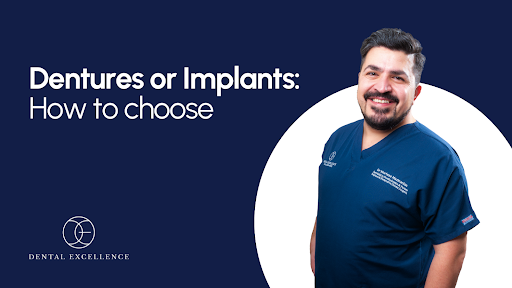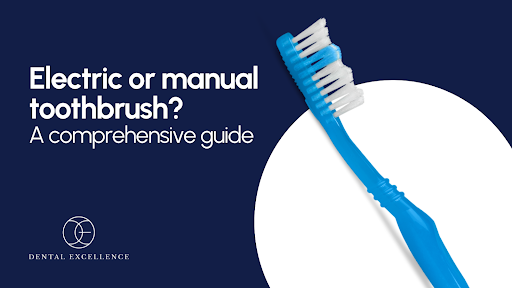Dental anxiety is a common issue affecting many individuals, often stemming from fear or apprehension related to dental procedures or experiences. This anxiety can range from mild unease to severe phobia, leading some individuals to avoid dental care altogether. Understanding the root causes of dental anxiety is crucial in developing effective coping mechanisms and relaxation techniques to overcome it.
What is dental anxiety?
Dental anxiety is a prevalent issue that can have significant implications for oral health and overall well-being. By understanding the root causes of dental anxiety and implementing effective coping mechanisms and relaxation techniques, individuals can take proactive steps to overcome their fears and access the dental care they need. With the support of compassionate dental professionals and a tailored approach to treatment, even the most anxious patients can achieve positive dental experiences and improved oral health outcomes Signs of dental anxiety:- Racing heartbeat or palpitations
- Sweating
- Displaying visible signs of stress, such as crying or panicking
- Experiencing low blood pressure or fainting
- Exhibiting withdrawal behaviors, which may manifest as negativity, aggression, or attempts at humor
What triggers dental anxiety?
For some, having experienced past negative encounters at the dentist or unrelated traumas can lead to the development of dental anxiety or a fear of dental professionals. Feelings of invasion of personal space, fear of loss of control, or issues with authority and trust can also exacerbate dental anxiety in certain individuals. The dental environment itself can be anxiety-inducing for some, with the vulnerability of lying back in the dental chair while a perceived authority figure works on their teeth. Communication barriers, such as the inability to speak during treatment, can further intensify feelings of discomfort and anxiety.Common Causes of Dental Anxiety
Understanding these root causes is essential for both patients and dental professionals in addressing and alleviating dental anxiety effectively. The fear of pain is a significant factor contributing to dental anxiety for many individuals. This apprehension often originates from past traumatic experiences, such as enduring intense discomfort during dental procedures or hearing unsettling stories from others about painful dental treatments. Even the anticipation of potential pain can evoke anxiety in patients, making it challenging for them to undergo necessary dental care.Fear of loss of control
Many patients experience a profound sense of vulnerability and loss of control when seated in the dental chair, intensifying their anxiety. The feeling of being in a physically vulnerable position while a dental professional performs procedures can trigger feelings of helplessness and anxiety. This fear of losing control over their own bodies during dental treatments can significantly heighten dental anxiety and make it difficult for patients to relax and cooperate during procedures.Embarrassment or shame
Feelings of embarrassment or shame about the condition of one’s teeth or the need for extensive dental work can also contribute to dental anxiety. Some individuals may feel self-conscious about their oral health and appearance, fearing judgment from dental professionals. The thought of exposing their teeth and oral health issues to scrutiny can evoke feelings of embarrassment or shame, leading to heightened anxiety about visiting the dentist.Will my dentist judge me?
In dentistry, it’s crucial to emphasize that dentists prioritize patient comfort and care over any form of judgment. Dentists are not interested in critiquing or evaluating patients for their anxiety levels or the current state of their teeth. Instead, they strive to cultivate a professional relationship built on mutual trust and respect, with the primary goal of improving oral health outcomes. It’s essential for patients to understand that dentists have likely encountered a wide range of dental issues in their practice, and they approach each case with empathy and understanding. Patients should not feel anxious or self-conscious about their oral health status when visiting the dentist, as dentists are trained to provide compassionate care and support, regardless of the circumstances. By emphasizing that dentists are not in the business of judgment but rather in the business of providing quality care, the article aims to alleviate any concerns or apprehensions patients may have about seeking dental treatment. Ultimately, the goal is to empower patients to feel comfortable and confident in their interactions with their dentist, promoting better oral health outcomes and overall well-being.Negative past experiences
Previous negative experiences at the dentist can leave a lasting impact on individuals, contributing to ongoing dental anxiety. Unpleasant encounters, such as experiencing discomfort, feeling judged, or being rushed through appointments, can create a sense of dread and apprehension about future dental visits. These negative associations with dental care can perpetuate anxiety and make it challenging for patients to seek timely treatment.Sensory overload
The sensory stimuli present in dental clinics, including sights, sounds, and smells, can overwhelm some individuals, triggering their anxiety response. The clinical environment, with its bright lights, whirring dental equipment, and antiseptic odors, can be particularly distressing for patients sensitive to sensory stimuli. This sensory overload can heighten feelings of anxiety and make dental visits daunting for some individuals, leading to avoidance behaviors and delayed dental care.How common is dentist anxiety?
Dentist anxiety, also known as dental phobia, is a common issue encountered in dental practices worldwide. According to surveys conducted by Dental Phobia, it has been found that as many as 53% of individuals in the UK harbor anxiety about going to the dentist. From the perspective of a dental clinic, it’s essential to acknowledge the prevalence of dental anxiety among patients and understand its impact on their oral health and overall well-being.Coping mechanisms for dental anxiety
As a dental practice committed to patient care, we recognize the challenges associated with dental anxiety. Dental anxiety can lead to avoidance behaviors and may result in significant oral health issues. Patients experiencing anxiety may find it helpful to employ relaxation techniques, such as proper breathing exercises, to ease physical and mental tension during dental appointments. We encourage effective communication and compassionate care to support patients with dental anxiety. Our team strives to create a welcoming environment where patients feel understood and valued, promoting a positive outlook for future dental visits and overall oral health. For individuals with severe anxiety, we offer various treatment options, including anti-anxiety medications and conscious sedation, to enhance comfort and relaxation during dental procedures.Transparent communication
Effective communication with your dentist is paramount when addressing dental anxiety. By openly expressing your concerns and fears, you allow your dentist to tailor their approach to your specific needs, providing personalized reassurance and support throughout the entire process. This collaborative dialogue fosters a sense of trust and understanding, helping to alleviate anxiety and create a more comfortable dental experience. Gradual exposure to dental environments and procedures can be a beneficial strategy for desensitizing anxious individuals over time. Starting with simple, non-invasive treatments and gradually progressing to more complex procedures allows patients to acclimate to the dental setting at their own pace. This incremental approach builds confidence and reduces anxiety, empowering patients to overcome their fears and feel more at ease during future dental visits.Relaxation techniques
Incorporating relaxation techniques into your dental routine can significantly contribute to a calmer and more positive experience. Techniques such as deep breathing, progressive muscle relaxation, and guided imagery help to calm the mind and relax the body, promoting a sense of tranquility and well-being during dental appointments. Consistent practice of these relaxation techniques outside of dental visits can also help to manage overall anxiety levels, providing long-term benefits for mental and emotional well-being. Distraction methods offer another effective way to alleviate anxiety during dental procedures. Engaging in activities such as listening to music, watching a movie, or focusing on a specific object can divert attention away from the dental treatment, reducing feelings of nervousness and discomfort. By shifting the focus to enjoyable or calming stimuli, patients can effectively manage their anxiety and enhance their overall dental experience. Benefits of relaxation techniques for dental anxiety:- Stress reduction
- Decreased physical symptoms of anxiety
- Increased comfort during dental procedures
- Improved trust and communication
- Reduced need for sedation
- Enhanced empowerment and sense of control
- Long-term anxiety management
- Promotion of oral health
- Cost-effectiveness
- Overall well-being improvement
Mindfulness
Mindfulness practices, including meditation and mindfulness-based stress reduction (MBSR), are powerful tools for cultivating present-moment awareness and acceptance. By learning to observe thoughts and sensations without judgment, individuals can develop a greater sense of control and resilience in the face of dental anxiety. Incorporating mindfulness into daily life can help to reframe negative thoughts and emotions, reducing anxiety associated with future dental visits and promoting a sense of calm and balance. Benefits of meditation for dental anxiety:- Stress reduction
- Induction of relaxation response
- Anxiety management
- Improved focus and attention
- Emotional regulation
- Enhanced pain tolerance
- Mind-body connection awareness
- Long-term coping skills
- Improved sleep quality
- Complementary to other therapies



